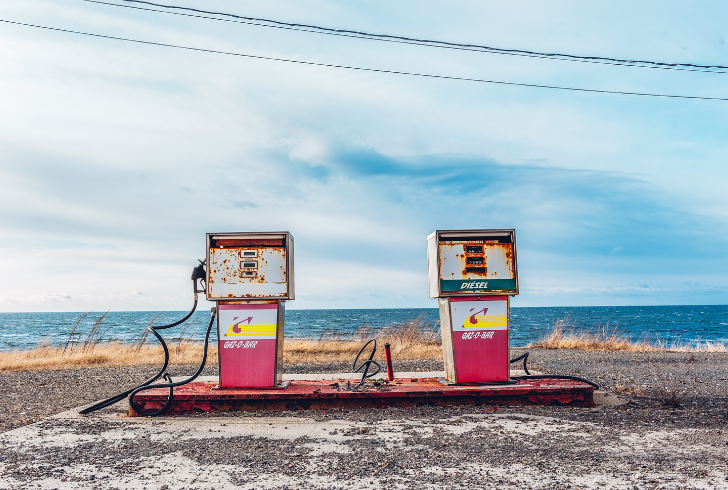Gasoline is a vital part of many household and recreational activities, fueling everything from cars to lawn mowers. However, when gasoline sits unused for too long, it can degrade and become a potential hazard. Knowing how to dispose of old gas is essential for safety and environmental protection.
Here’s a detailed guide on handling and disposing of old gasoline responsibly.
How Long Does Gasoline Last?
Gasoline doesn’t last forever. Typically, gasoline remains usable in a vehicle’s tank for about six months. Diesel fuel has a slightly longer shelf life, lasting up to a year. However, the gasoline you have may be older, depending on how long it’s been sitting since its purchase. Over time, gasoline can degrade, changing in color and smell, which impacts its efficiency and safety. Always check the quality before use, especially if it’s been stored for a while.
The Risks of Improper Gasoline Disposal

Pexels | Harrison Haines | Gasoline has a shelf life and can degrade, affecting engine performance.
Gasoline is highly flammable and toxic, making improper disposal a serious concern. Throwing gasoline in the trash, pouring it down a sink or toilet, or attempting to burn it can lead to dangerous consequences. These methods not only risk environmental contamination but also pose significant hazards to human health. Proper disposal of old gas is crucial to prevent these risks.
Safe Methods on How to Dispose of Old Gas
1. Take it to a Household Hazardous Waste Facility
Household Hazardous Waste (HHW) facilities are designed to handle and dispose of hazardous materials like old gasoline. These facilities ensure that the gasoline is processed in an environmentally safe manner. Check with your local HHW facility to confirm if they accept gasoline and whether there are any fees involved.
2. Use a Local Recycling Center
Many local recycling centers accept gasoline for proper disposal or recycling. The facilities often charge a small fee, but they ensure the gasoline is handled correctly. To find a recycling center near you, consult the gasoline disposal page on websites like Earth911.
3. Attend a Community Collection Event
Community collection events provide an opportunity to dispose of hazardous materials, including gasoline. These events are organized periodically by municipalities and are a convenient way to safely dispose of old gas. Check the event’s list of acceptable items beforehand to confirm that gasoline is accepted.
4. Contact Your Local Fire Department
Some fire departments accept old gasoline for disposal. They typically forward it to specialized facilities for proper handling. Verify with your local fire station if they offer this service before bringing your gasoline.
5. Check with Auto Repair Shops

Freepik | ttonaorh | Local auto repair shops may accept uncontaminated gasoline for various uses.
Auto repair shops may accept old gasoline if it’s free from contaminants. They often have the means to dispose of or recycle vehicle fluids safely. Contact local auto repair shops to inquire if they can assist with your old gasoline.
Handling Gasoline with Water Contamination
If gasoline becomes contaminated with water, it is generally unusable and can damage engines. To separate water from gasoline:
1. Allow Separation in a Container
Pour the gasoline into a clear container and let it sit. The water will settle at the bottom, allowing the gasoline to be siphoned off from the top.
2. Use a Fuel Dryer
Adding a fuel dryer, which contains isopropanol, to water-contaminated gasoline helps absorb the water. Use isopropyl alcohol, not rubbing alcohol, as the latter contains excessive water.
Extending the Life of Gasoline
To reduce the frequency of disposing of gasoline and its impact on the environment, consider the following tips:
1. Store Properly - Use a tightly sealed, government-approved fuel container for storage.
2. Add Fuel Stabilizer - Adding a fuel stabilizer can extend gasoline’s life up to 12 months, making it suitable for future use.
By following these guidelines on how to dispose of old gas, you can ensure that you handle gasoline safely, protecting both the environment and personal safety. Proper disposal and handling of old gasoline not only helps in preventing environmental contamination but also reduces the risk of hazardous incidents.

